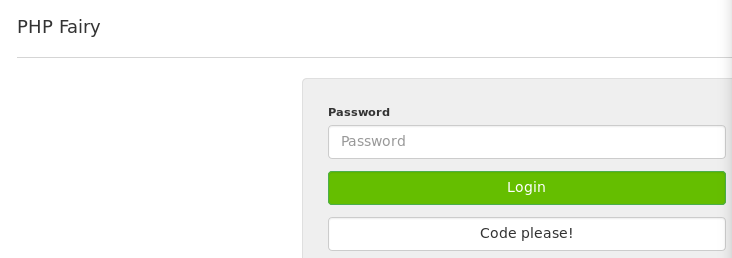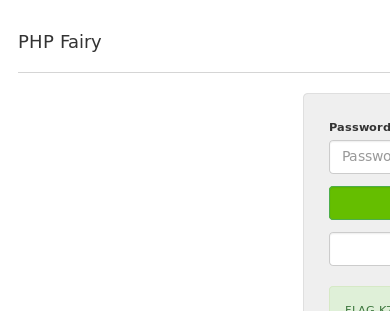Writeup - ringzer0team.com challenges (web 254) - 'PHP Fairy'

This challenge initially presents a login screen which has a single password field as input, a login button, and another button which displays the underlying PHP source code (with the flag obfuscated). Taking a look at the code, password input is handled by $_GET[‘pass’], and there are several obstacles in the way which prevent access to the flag.
1
2
3
4
5
6
7
8
9
10
11
12
13
14
15
16
17
18
19
20
<?php
$output = "";
if (isset($_GET['pass'])) {
if(!preg_match('/^[^\W_]+$/', $_GET['pass'])) {
$output = "Don't hack me please :(";
} else {
$pass = md5("admin1674227342");
if ((((((((($_GET['pass'] == $pass)))) && (((($pass !== $_GET['pass']))))) || ((((($pass == $_GET['pass'])))) && ((($_GET['pass'] !== $pass)))))))) { // Trolling u lisp masta
if (strlen($pass) == strlen($_GET['pass'])) {
$output = "<div class='alert alert-success'>FLAG-XXXXXXXXXXXXXXXXXXXXXXX</div>";
} else {
$output = "<div class='alert alert-danger'>Wrong password</div>";
}
} else {
$output = "<div class='alert alert-danger'>Wrong password</div>";
}
}
}
?>
The conditions to retrieve the flag are as follows:
- Line 5: Legal input consists of alphanumeric characters only
- Line 9: Several comparisons (using both loose and strict operations) take place between input and a generated MD5 hash. This is supposed to be confusing, as the second checks after the OR are the first ones in reverse. What it boils down to is that input cannot be identical to the MD5 hash, yet it must be equal (after type juggling occurs)
- Line 10: Input value must equal the size of the MD5 hash - 32 chars (128 bits)
Reading through the PHP manual provides some valuable information:
With this knowledge in hand, we can observe that the MD5 hash begins with a zero:
echo -n admin1674227342 | md5sum
0e463854177790028825434984462555Therefore, we know that using a zero as input will pass both the strict and loose comparisons, leaving the final string length obstacle. This final boss can be bypassed by inputting 32 zero characters, which does not change the numeric value and does provide the necessary length to bypass the string length comparison, providing the flag to us.

Useful resources to learn more about PHP Type Juggling issues: